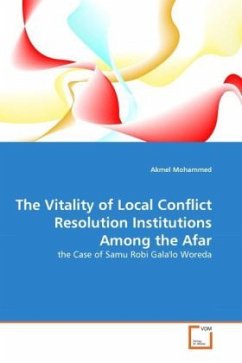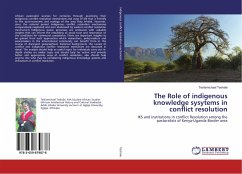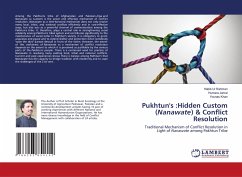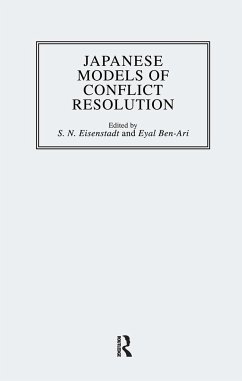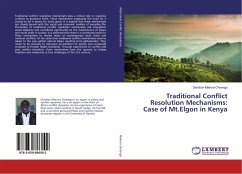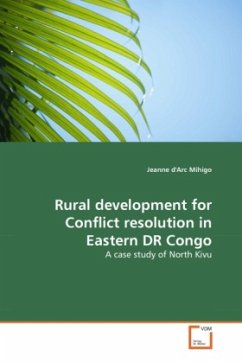
Rural development for Conflict resolution in Eastern DR Congo
A case study of North Kivu
Versandkostenfrei!
Versandfertig in 6-10 Tagen
32,99 €
inkl. MwSt.

PAYBACK Punkte
16 °P sammeln!
For more than four decades, the North Kivu province has been experiencing recurrent violent conflicts rooted in the structure of governance established by the colonial power and subsequent regimes that followed the DRC's independence in 1960. Both internal and external factors have fuelled the conflicts including the side effects of global capitalism and unfair distribution of people's rights. This study, limited to Masisi and Rutshuru territories explores the relationship between rural development and the current conflicts. From a big picture perspective, it appears that poor governance is th...
For more than four decades, the North Kivu province has been experiencing recurrent violent conflicts rooted in the structure of governance established by the colonial power and subsequent regimes that followed the DRC's independence in 1960. Both internal and external factors have fuelled the conflicts including the side effects of global capitalism and unfair distribution of people's rights. This study, limited to Masisi and Rutshuru territories explores the relationship between rural development and the current conflicts. From a big picture perspective, it appears that poor governance is the main cause of conflicts in the province. As regards to rural development, the current direct violence originates from power disputes; administrative and over land. Therefore, an appropriate rural development plan supported and guaranteed by an effective decentralization would surely contribute to reduce significantly the conflicts magnitude.




